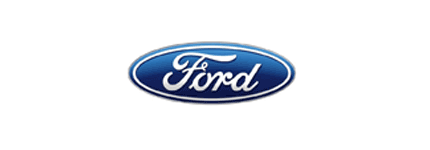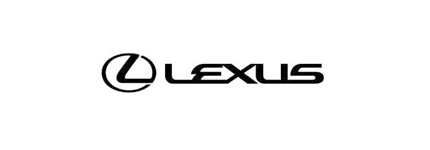Alfa Romeo
Originally designed by Romano Cattaneo and Giuseppe Merosi, in 1910 The Alfa Romeo company was founded in 1910, and the logo has changed many times since then, but its main items have remained – the red on white cross of Milan, and the serpent from the Visconti family coat of arms. I’m not a big fan of the Alfa Romeo logo. Mainly because I think there’s too much detail in the serpent, which becomes lost at small sizes.
The Alfa Romeo company was founded in 1910, and the logo has changed many times since then, but its main items have remained – the red on white cross of Milan, and the serpent from the Visconti family coat of arms. I’m not a big fan of the Alfa Romeo logo. Mainly because I think there’s too much detail in the serpent, which becomes lost at small sizes.
Originally designed by Romano Cattaneo and Giuseppe Merosi, in 1910
 The Alfa Romeo company was founded in 1910, and the logo has changed many times since then, but its main items have remained – the red on white cross of Milan, and the serpent from the Visconti family coat of arms. I’m not a big fan of the Alfa Romeo logo. Mainly because I think there’s too much detail in the serpent, which becomes lost at small sizes.
The Alfa Romeo company was founded in 1910, and the logo has changed many times since then, but its main items have remained – the red on white cross of Milan, and the serpent from the Visconti family coat of arms. I’m not a big fan of the Alfa Romeo logo. Mainly because I think there’s too much detail in the serpent, which becomes lost at small sizes.
Audi
Designed in 1932 Audi’s four ring logo was designed to symbolize the merger of four individual car companies. It’s certainly one of my favourite car manufacturer logos.
Audi’s four ring logo was designed to symbolize the merger of four individual car companies. It’s certainly one of my favourite car manufacturer logos.
Designed in 1932
 Audi’s four ring logo was designed to symbolize the merger of four individual car companies. It’s certainly one of my favourite car manufacturer logos.
Audi’s four ring logo was designed to symbolize the merger of four individual car companies. It’s certainly one of my favourite car manufacturer logos.
BMW
Designed in 1917 The blue and white panels of the Bavarian flag were placed at the centre of the design. During the late 1920s, the BMW logo was given a new interpretation, that of a rotating propellor. Simple and iconic.
The blue and white panels of the Bavarian flag were placed at the centre of the design. During the late 1920s, the BMW logo was given a new interpretation, that of a rotating propellor. Simple and iconic.
Designed in 1917
 The blue and white panels of the Bavarian flag were placed at the centre of the design. During the late 1920s, the BMW logo was given a new interpretation, that of a rotating propellor. Simple and iconic.
The blue and white panels of the Bavarian flag were placed at the centre of the design. During the late 1920s, the BMW logo was given a new interpretation, that of a rotating propellor. Simple and iconic.
Fiat
Designed by Robilant Associati and the Fiat Style Centre, in 2006 Between 1931 and 1968, a shield emblem decorated Fiats. This logo design recalls the older icon, and the revised version has been made 3D. There’s something about the type that just doesn’t inspire a good feeling. Is that just me?
Between 1931 and 1968, a shield emblem decorated Fiats. This logo design recalls the older icon, and the revised version has been made 3D. There’s something about the type that just doesn’t inspire a good feeling. Is that just me?
Designed by Robilant Associati and the Fiat Style Centre, in 2006
 Between 1931 and 1968, a shield emblem decorated Fiats. This logo design recalls the older icon, and the revised version has been made 3D. There’s something about the type that just doesn’t inspire a good feeling. Is that just me?
Between 1931 and 1968, a shield emblem decorated Fiats. This logo design recalls the older icon, and the revised version has been made 3D. There’s something about the type that just doesn’t inspire a good feeling. Is that just me?
Ford
Designed by CH Wills, in 1909 The designer, CH Wills, was actually an engineer and draughtsman, working for Henry Ford in the early days. Extremely recognisable through the sheer scale of Ford production. The logo has certainly stood the test of time, but I’m curious as to what other logo designers think of it. Maybe it’s just that I’m not so keen on ovals.
The designer, CH Wills, was actually an engineer and draughtsman, working for Henry Ford in the early days. Extremely recognisable through the sheer scale of Ford production. The logo has certainly stood the test of time, but I’m curious as to what other logo designers think of it. Maybe it’s just that I’m not so keen on ovals.
Designed by CH Wills, in 1909
 The designer, CH Wills, was actually an engineer and draughtsman, working for Henry Ford in the early days. Extremely recognisable through the sheer scale of Ford production. The logo has certainly stood the test of time, but I’m curious as to what other logo designers think of it. Maybe it’s just that I’m not so keen on ovals.
The designer, CH Wills, was actually an engineer and draughtsman, working for Henry Ford in the early days. Extremely recognisable through the sheer scale of Ford production. The logo has certainly stood the test of time, but I’m curious as to what other logo designers think of it. Maybe it’s just that I’m not so keen on ovals.
Jaguar
Designed by The Partners, in 2002 In updating the older Jaguar logo, The Partners altered the logotype and digitally remodelled the leaping Jaguar. I’ve often wondered why the Jaguar is shown leaping from right to left, countering how the eye reads the text from left to right. Perhaps it’s to create a more streamlined end?
In updating the older Jaguar logo, The Partners altered the logotype and digitally remodelled the leaping Jaguar. I’ve often wondered why the Jaguar is shown leaping from right to left, countering how the eye reads the text from left to right. Perhaps it’s to create a more streamlined end?
Designed by The Partners, in 2002
 In updating the older Jaguar logo, The Partners altered the logotype and digitally remodelled the leaping Jaguar. I’ve often wondered why the Jaguar is shown leaping from right to left, countering how the eye reads the text from left to right. Perhaps it’s to create a more streamlined end?
In updating the older Jaguar logo, The Partners altered the logotype and digitally remodelled the leaping Jaguar. I’ve often wondered why the Jaguar is shown leaping from right to left, countering how the eye reads the text from left to right. Perhaps it’s to create a more streamlined end?
Lexus
Designed by Siegel & Gale, in 2002 The name ‘Lexus’ has been attributed to the words ‘luxury’ and ‘elegance’, and this is one that I quite like.
The name ‘Lexus’ has been attributed to the words ‘luxury’ and ‘elegance’, and this is one that I quite like.
Designed by Siegel & Gale, in 2002
 The name ‘Lexus’ has been attributed to the words ‘luxury’ and ‘elegance’, and this is one that I quite like.
The name ‘Lexus’ has been attributed to the words ‘luxury’ and ‘elegance’, and this is one that I quite like.
Mercedes-Benz
Designed in 1909 One of the most recognisable logos around. A three-pointed star had been designed by Gottlieb Daimler, to show the ability of his motors for land, air, and sea use. This star first appeared on a DMG model in 1909, so it was chosen for the new logo. The traditional laurel wreath symbol used by Karl Benz was added along with his name to complete the new logo. The logo with a plain ring, as seen today, was not used until 1937.
One of the most recognisable logos around. A three-pointed star had been designed by Gottlieb Daimler, to show the ability of his motors for land, air, and sea use. This star first appeared on a DMG model in 1909, so it was chosen for the new logo. The traditional laurel wreath symbol used by Karl Benz was added along with his name to complete the new logo. The logo with a plain ring, as seen today, was not used until 1937.
Designed in 1909
 One of the most recognisable logos around. A three-pointed star had been designed by Gottlieb Daimler, to show the ability of his motors for land, air, and sea use. This star first appeared on a DMG model in 1909, so it was chosen for the new logo. The traditional laurel wreath symbol used by Karl Benz was added along with his name to complete the new logo. The logo with a plain ring, as seen today, was not used until 1937.
One of the most recognisable logos around. A three-pointed star had been designed by Gottlieb Daimler, to show the ability of his motors for land, air, and sea use. This star first appeared on a DMG model in 1909, so it was chosen for the new logo. The traditional laurel wreath symbol used by Karl Benz was added along with his name to complete the new logo. The logo with a plain ring, as seen today, was not used until 1937.
Mitsubishi
Designed by Yataro Iwasaki, in 1870 I featured the Mitsubishi logo in an earlier post, 15 wonderfully simple logo designs, and it’s a design I greatly admire. ‘Mitsubishi’ is a combination of the words ‘mitsu’ and ‘hishi’. ‘Mitsu’ means three, and ‘hishi’ means water chestnut. Japanese have used the word ‘hishi’ for a long time to denote a rhombus or diamond shape. In speech, Japanese often bend the ‘h’ to sound like a ‘b’ when it occurs in the middle of a word. So they pronounce the combination of ‘mitsu’ and ‘hishi’ as ‘mitsubishi’.
I featured the Mitsubishi logo in an earlier post, 15 wonderfully simple logo designs, and it’s a design I greatly admire. ‘Mitsubishi’ is a combination of the words ‘mitsu’ and ‘hishi’. ‘Mitsu’ means three, and ‘hishi’ means water chestnut. Japanese have used the word ‘hishi’ for a long time to denote a rhombus or diamond shape. In speech, Japanese often bend the ‘h’ to sound like a ‘b’ when it occurs in the middle of a word. So they pronounce the combination of ‘mitsu’ and ‘hishi’ as ‘mitsubishi’.
Designed by Yataro Iwasaki, in 1870
 I featured the Mitsubishi logo in an earlier post, 15 wonderfully simple logo designs, and it’s a design I greatly admire. ‘Mitsubishi’ is a combination of the words ‘mitsu’ and ‘hishi’. ‘Mitsu’ means three, and ‘hishi’ means water chestnut. Japanese have used the word ‘hishi’ for a long time to denote a rhombus or diamond shape. In speech, Japanese often bend the ‘h’ to sound like a ‘b’ when it occurs in the middle of a word. So they pronounce the combination of ‘mitsu’ and ‘hishi’ as ‘mitsubishi’.
I featured the Mitsubishi logo in an earlier post, 15 wonderfully simple logo designs, and it’s a design I greatly admire. ‘Mitsubishi’ is a combination of the words ‘mitsu’ and ‘hishi’. ‘Mitsu’ means three, and ‘hishi’ means water chestnut. Japanese have used the word ‘hishi’ for a long time to denote a rhombus or diamond shape. In speech, Japanese often bend the ‘h’ to sound like a ‘b’ when it occurs in the middle of a word. So they pronounce the combination of ‘mitsu’ and ‘hishi’ as ‘mitsubishi’.
Nissan
Designed by FutureBrand, in 2000 This metallic roundel is part of a successful Nissan revival, and in my opinion, is an improvement on those older designs that can be viewed by scrolling down on this page:Cartype Nissan Logo.
This metallic roundel is part of a successful Nissan revival, and in my opinion, is an improvement on those older designs that can be viewed by scrolling down on this page:Cartype Nissan Logo.
Designed by FutureBrand, in 2000
 This metallic roundel is part of a successful Nissan revival, and in my opinion, is an improvement on those older designs that can be viewed by scrolling down on this page:Cartype Nissan Logo.
This metallic roundel is part of a successful Nissan revival, and in my opinion, is an improvement on those older designs that can be viewed by scrolling down on this page:Cartype Nissan Logo.
Renault
Designed by Éric de Berranger, in 2004 Interesting typeface info: both the Renault logo and its documentation (technical as well as commercial) had used a specially designed typeface called Renault, developed by British firm Wolff Olins. This type family is said to have been designed not for prestige reasons, but mainly to save costs at a time where the use of typefaces was more costly than it is now. In 2004, French typeface designer Jean-François Porchez was commissioned to design a replacement. This was shown in October of that year and is called Renault Identité. I have featured Wolff Olins on my other blog: London 2012 olympic logo disaster.
Interesting typeface info: both the Renault logo and its documentation (technical as well as commercial) had used a specially designed typeface called Renault, developed by British firm Wolff Olins. This type family is said to have been designed not for prestige reasons, but mainly to save costs at a time where the use of typefaces was more costly than it is now. In 2004, French typeface designer Jean-François Porchez was commissioned to design a replacement. This was shown in October of that year and is called Renault Identité. I have featured Wolff Olins on my other blog: London 2012 olympic logo disaster.
Designed by Éric de Berranger, in 2004
 Interesting typeface info: both the Renault logo and its documentation (technical as well as commercial) had used a specially designed typeface called Renault, developed by British firm Wolff Olins. This type family is said to have been designed not for prestige reasons, but mainly to save costs at a time where the use of typefaces was more costly than it is now. In 2004, French typeface designer Jean-François Porchez was commissioned to design a replacement. This was shown in October of that year and is called Renault Identité. I have featured Wolff Olins on my other blog: London 2012 olympic logo disaster.
Interesting typeface info: both the Renault logo and its documentation (technical as well as commercial) had used a specially designed typeface called Renault, developed by British firm Wolff Olins. This type family is said to have been designed not for prestige reasons, but mainly to save costs at a time where the use of typefaces was more costly than it is now. In 2004, French typeface designer Jean-François Porchez was commissioned to design a replacement. This was shown in October of that year and is called Renault Identité. I have featured Wolff Olins on my other blog: London 2012 olympic logo disaster.
Seat
Designed by Enterprise IG, in 1950 The striped ‘S’ came about from the first letter of the previous logotype.
The striped ‘S’ came about from the first letter of the previous logotype.
Designed by Enterprise IG, in 1950
 The striped ‘S’ came about from the first letter of the previous logotype.
The striped ‘S’ came about from the first letter of the previous logotype.
Volkswagon
Designed by Franz Xaver Reimspiess, in 1938 No official designer has been recorded for this logo. The latest variation of the VW logo include a 3D highlight from MetaDesign, added in 2000. A lot of car firms are implementing a 3D appearance nowadays. For how long do you think this trend will last?
No official designer has been recorded for this logo. The latest variation of the VW logo include a 3D highlight from MetaDesign, added in 2000. A lot of car firms are implementing a 3D appearance nowadays. For how long do you think this trend will last?
If you can add to the explanations for any of the above logos, please do. I can’t ensure that I’m 100% correct, and will gladly modify possible errors. Do you have a favourite car manufacturer logo? There are many more that aren’t listed, and I’ll feature them in upcoming blog posts.
Designed by Franz Xaver Reimspiess, in 1938
 No official designer has been recorded for this logo. The latest variation of the VW logo include a 3D highlight from MetaDesign, added in 2000. A lot of car firms are implementing a 3D appearance nowadays. For how long do you think this trend will last?
No official designer has been recorded for this logo. The latest variation of the VW logo include a 3D highlight from MetaDesign, added in 2000. A lot of car firms are implementing a 3D appearance nowadays. For how long do you think this trend will last?If you can add to the explanations for any of the above logos, please do. I can’t ensure that I’m 100% correct, and will gladly modify possible errors. Do you have a favourite car manufacturer logo? There are many more that aren’t listed, and I’ll feature them in upcoming blog posts.

No comments:
Post a Comment